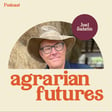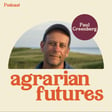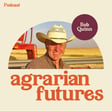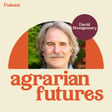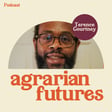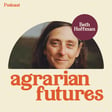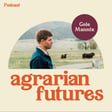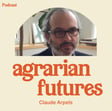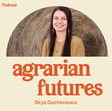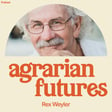
Why Farmland Shouldn’t Be a Commodity with Sarah Mock
We all need land to eat, but more and more, farmland has become a financial asset instead of a source of food, livelihood, and community. And when agriculture becomes just another investment, we risk losing something essential, not just for farmers, but for the health, resilience, and future of our entire society.
Journalist and researcher Sarah Mock joins us to unpack the deep consequences of treating land like a commodity - from pricing out new farmers, to consolidating ownership, to weakening the rural communities that once thrived around agriculture.
We explore the forgotten history of agrarian populism, the modern land trap that affects both aging landowners and aspiring farmers, and why the future of food depends on rethinking ownership - not just optimizing yields.
In this episode, we dive into:
- Why land "defies capitalism" - and what that means for our food system.
- The double bind of retiring farmers and new farmers locked out by land prices.
- How the disappearance of agrarian populism has shaped today’s agriculture policy.
- The myth of the silver-bullet tech fix for food and farming.
- Real alternatives to land as a speculative commodity.
- And what it would take to make small and mid-size farming viable again.
More about Sarah:
Sarah Mock is a food and agriculture writer, researcher, and podcaster. She grew up on a small farm in Wyoming, and since then has spent more than a decade working on everything from farm production, strategy, and marketing to ag history and economics to food logistics, supply chains, and climate impact. She’s worked in and around agriculture across the country and around the globe, with non-profits, the U.S. Department of Agriculture, Silicon Valley companies, the national news media, and directly with farms. Her work has culminated in a number of award-winning projects, including her best-selling book Farm (and Other F Words) and her podcast series The Only Thing That Lasts, which explores the past, problems, and possibilities of American farmland. Learn more at https://sarahkmock.com/.
Agrarian Futures is produced by Alexandre Miller, who also wrote our theme song. This episode was edited by Drew O’Doherty.


